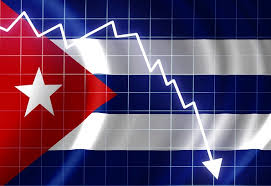In search of light on the importance of the event and its future scenarios, we consulted experts on both sides of the Florida Straits.
Ernesto Dominguez, professor and researcher at the Center for Hemispheric and US Studies at the University of Havana (CEHSEU), believes that the opening of embassies works on several levels: the first is symbolic because reveals that the process advances.
This implies the formal recognition of the legality and legitimacy of the Cuban government by the US executive, one of the traditional barriers between the two countries, he said.
On this point the professor Carlos Alzugaray, a political scientist and former Cuban diplomat, said the restoration of relations is a step that few thought were possible but has given thanks, first to the strength, the wisdom of the people and their leaders particularly President Raul Castro; while recognizing the boldness and courage of the US president, Barack Obama.
For its part, the visiting professor at the Center for Global Affairs at New York University, Arturo Lopez-Levy, sees the opening of embassies as a milestone in relations between Cuba and the US, and the latter with Latin America.
“It is not normal, but institutionalizes the purpose of standardization. The evidence of this new reality is expressed in the number of working groups have begun to operate between the two nations, where the US begins to treat Cuba as a country fully sovereign, “he said.
Alzugaray ensures that both governments have been pragmatic, and have not let the big problems that separate -the blockade, trade-offs, the subversive policy towards Cuba, the Guantanamo Naval Base and the Cuban Adjustment Act, without whose solution We can not speak of normalization in general, stand in the way of establishing areas of cooperation that must be expanding and deepening which can produce benefits for Cuba.
Both Dominguez as Alzugaray agree that diplomatic missions formally establish a permanent channel of communication between the two governments and “that in itself has great value as a continuation of the technical dialogue,” he explained first.
To the extent that mutually beneficial agreements are achieved, the appetite will overthrow the Cuban government gave way to realistic and pragmatic consideration that it’s not worth trying to lay a solid and stable government with which to reach decisions legitimate interests in the diplomatic, security, economic, commercial plane, which inevitably include a normally, cultural, scientific and educational tourism, Alzugaray added.
As a turning point on the way to the normalization of relations, called Dr. Jorge Hernandez, professor and director of CEHSEU, the opening of diplomatic legations.
It is a step forward, said Hernandez, who said while inaugurating a phase in which new challenges, problems, issues that will demand constant attention and some of these challenges or aspects probably already have imagined will appear, may be assumed or expected; others maybe not, will appear on the go.
On these issues, Professor Carlos Alzugaray recalls two points of conflict: the asymmetry between the two countries and eventually conflictual history
between American hegemonic will and Cuban aspiration to full sovereignty and self-determination.
“The Americans have to get used to the idea that Cuba will not fold and the US Embassy in Havana, have to work to eliminate the natural distrust that exists in our society towards their activities and must do so with respect, transparency and goodwill . That’s the challenge facing diplomats, “he said.
Meanwhile, Lopez-Levy said the blockade as the first obstacle in this new phase of work. This is indicated by President Obama called on Congress to have it removed.
“There is an opportunity in the next two years, creating significant political traction against the blockade. Firstly because the agreements of December 17 empower enforcement dynamics that undermine the imperial strategy, logical and favorable audiences collaboration” says Professor at the University of New York.
US will not change overnight the idea of an alleged responsibility in transforming the island, he said. “It will take time to understand that it is not only methods but the same purposes of policy towards Cuba should be different,” he said.
Professor Ernesto Dominguez mentioned as one of the main obstacles to the process which begins on July 20, US domestic politics, and the ability of groups opposed to a change to Cuba to slow or block important aspects, such as the proposed elimination of restrictions on travel to the island; or addressing particularly sensitive issues, such as property nationalized after the triumph of the Revolution.
With over 25 years as a professor at the University of Florida and currently a researcher at the Center for Latin American Studies at New York University, Lisandro Perez believes that the most important thing now is to use the time in office he has left Obama to a relationship with Cuba that is irreversible is established.
“When people start seeing the dynamics and as a result of this contact between the two countries based on the travel of Americans to the island increases, I think the process is irreversible. All this will have a tremendous impact and eventually opposition to the policy towards Cuba will fall under its own weight, “said Perez.
Dr. Jorge Hernandez emphasized the possible setbacks associated with the persistence of subversive activities, support for the counterrevolution in Cuba, maintaining the funds allocated by the US government to finance activities aimed at so-called regime change, among others.
At the symbolic level, Hernandez agrees that you should not overestimate the significance of the tremor that constituted the ads on December 17th.
He said that beyond the global impact in the media and in political circles of many countries that have raised debates, speculation, hope, concern, it is important to understand the process in its proper perspective.
Time, as always, is who summarizes, who will have the last word, he said.
Translated by: Daysi Olano Fernandez





